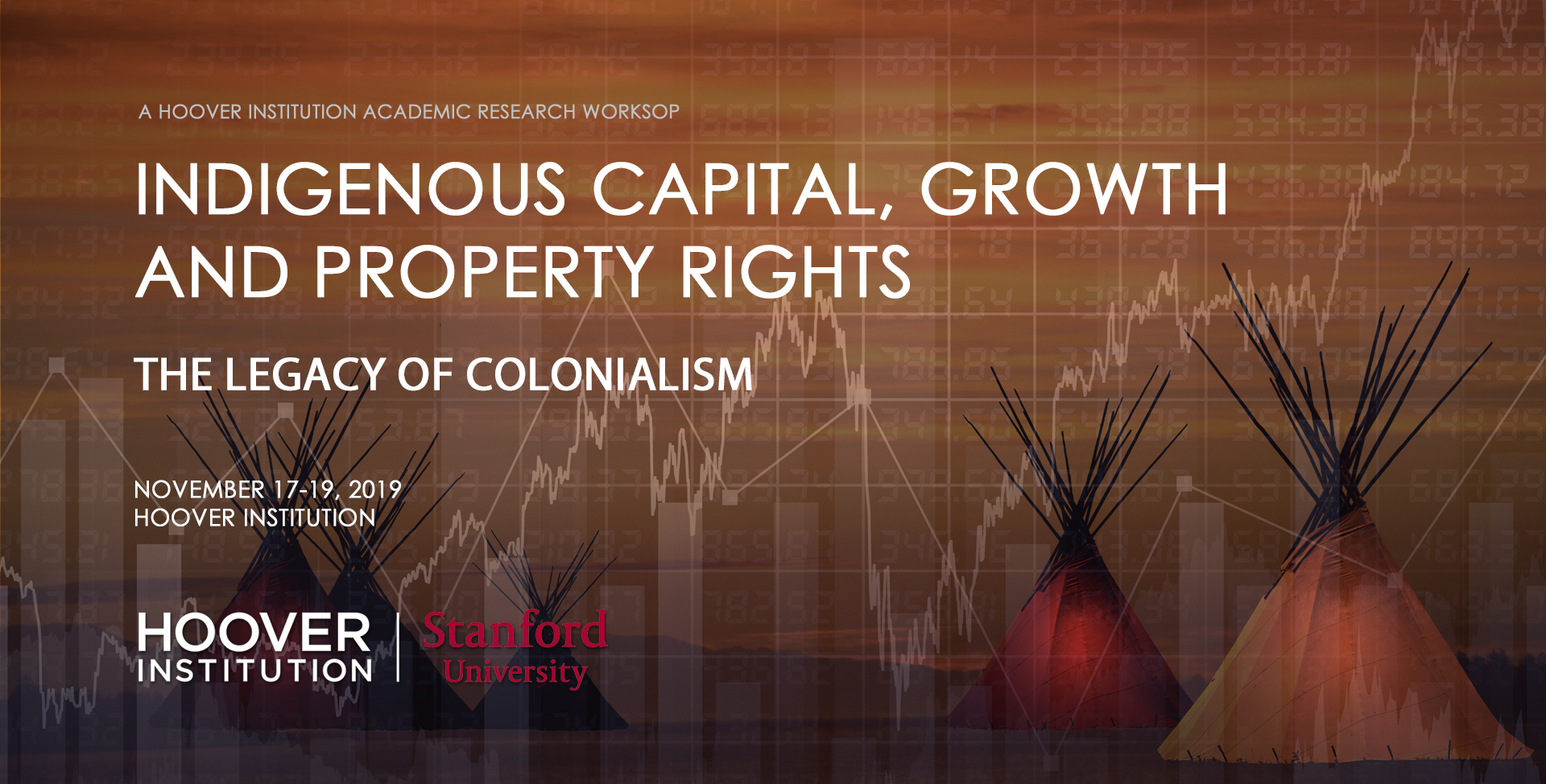This event is by invitation only.
BACKGROUND
Capital investment and property rights are generally considered Western concepts exported in the era of European empire building, but pre-colonial evidence from Africa and the Americas suggest that capital investment and property rights are part of the human experience. Europeans assumed the societies they encountered in the Americas lacked the institutions and intellect necessary to fuel economic growth. Careful examination of pre-colonial and colonial societies, however, offer a different perspective—a perspective that sheds light on how indigenous people around the world can renew their economies from the ground up, rather than answering the “siren call of federal handouts," as Alvin “A.J.” Not-Afraid, Chairman of the Crow Tribe, puts it.
In launching “new institutional economics,” Douglass North (1960, 53) emphasized that the “major role of institutions in a society is to reduce uncertainty by establishing a stable structure to human interaction.” That formula seems simple, but the fact that many countries remain poor today suggests that stimulating the necessary capital investments is not so easy.
For this reason and by North’s definition of institutions, there can be no question that American Indians had both informal and formal rules that promoted capital investment and productivity prior to European contact. At the individual level, Indians used varying degrees of private ownership or control of assets for everything from household goods, to horses, to hunting and trapping territories, to land. They marked territories with stones and trees, their horses with paint, their arrows with coloring, all designed to say this is mine and not yours.
Given the rich institutional history of Native Americans, why has capital investment lagged on reservations and what will it take to rejuvenate capital investment today? Put another way, what were the property rights structures in pre-contact American Indian societies, what happened to the rule of law that secures property rights that encouraged capital investment, and what will it take to rekindle the rule of law and property rights among Indian tribes?
ORGANIZERS
Terry L. Anderson, Hoover Institution Senior Fellow
Dominic Parker, University of Wisconsin Associate Professor
Monday, November 18, 2019
| Time | Content | Presenters/panelists |
|---|---|---|
|
7:30 AM - 8:30 AM |
Breakfast |
-- |
|
8:30 AM - 8:45 AM |
Welcome |
Terry L. Anderson, Hoover Institution |
|
8:45 AM - 10:00 AM |
Reciprocity as a Form of Hypothecation: Indigenous Capital Markets |
D. Bruce Johnsen, George Mason University |
|
10:15 AM - 11:30 AM |
Ilia Murtazashvili, University of Pittsburgh |
|
|
11:30 AM - 12:45 PM |
The Missionary Imposition? The Long-run Effect of Indian Missions in the United States |
Donna Feir, Minneapolis Federal Reserve Bank |
|
1:45 PM - 3:15 PM |
The Effect of Land Allotment on Native American Households During the Assimilation Era |
Christian Dippel, University of California Los Angeles Christian Dippel, University of California Los Angeles |
|
3:30 PM - 4:45 PM |
Leslie Sanchez, Tufts University |
|
|
6:30 PM |
Dinner |
|
Tuesday, November 19, 2019
| Time | Content | Presenters/panelists |
|---|---|---|
|
7:30 AM - 8:30 AM |
Breakfast |
|
|
8:30 AM - 9:45 AM |
Are the Business Killing Trust Restrictions on Tribal Land Constitutional? |
Adam Crepelle, Southern University Law Center |
|
9:45 AM - 11:15 AM |
Comparative Secured Transactions Law and Renewing Indigenous Economies’ Access to Finance Measuring Utilization Effect of Secured Transactions on Tribal Lands |
Dwight Newman, University of Saskatchewan Marc L. Roark, Southern University Law Center |
| 11:15 AM - 12:30 PM |
Tribal Culture and Economic Prosperity: Complements or Substitutes? |
Dominic Parker, University of Wisconsin |



















